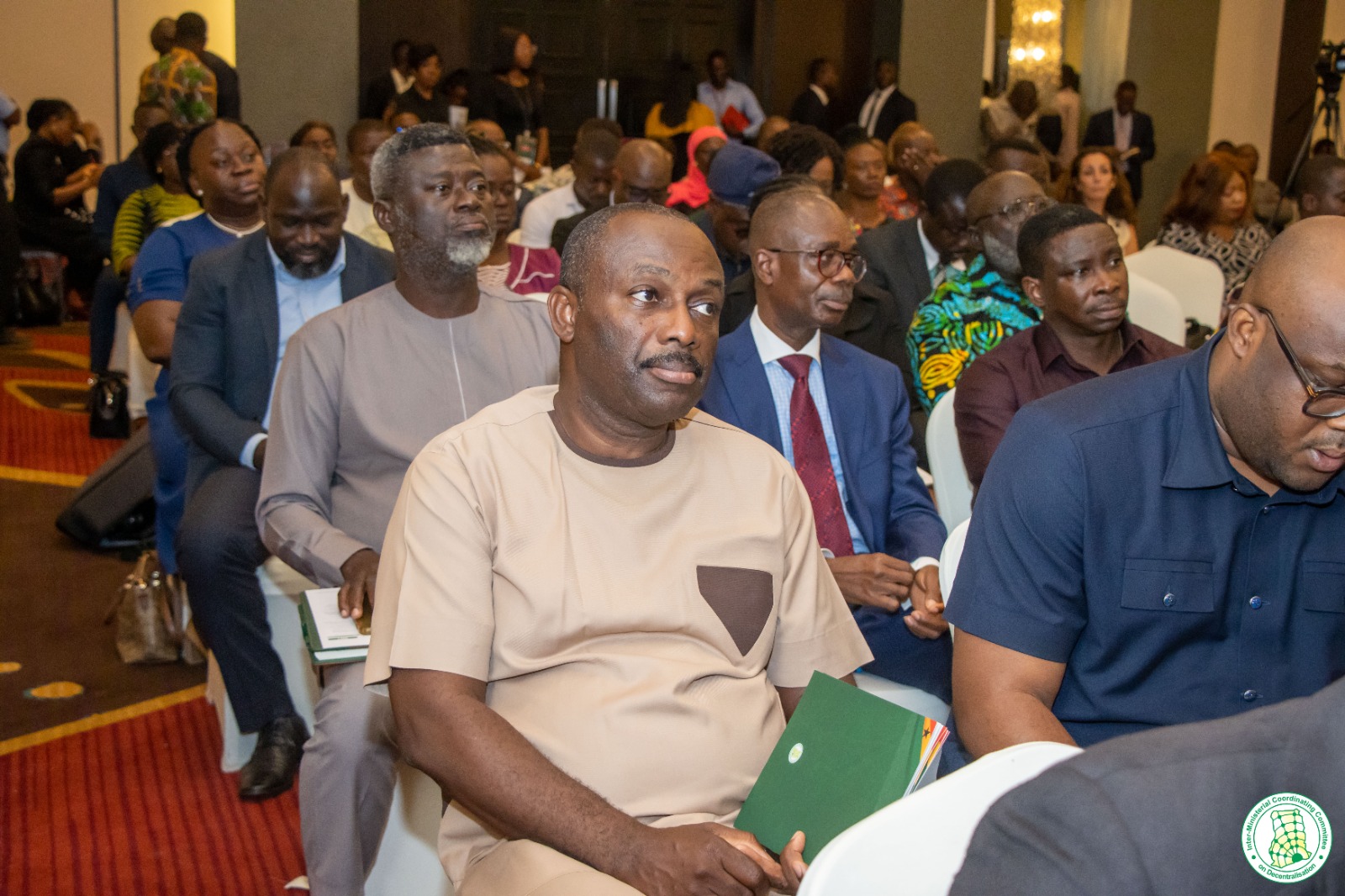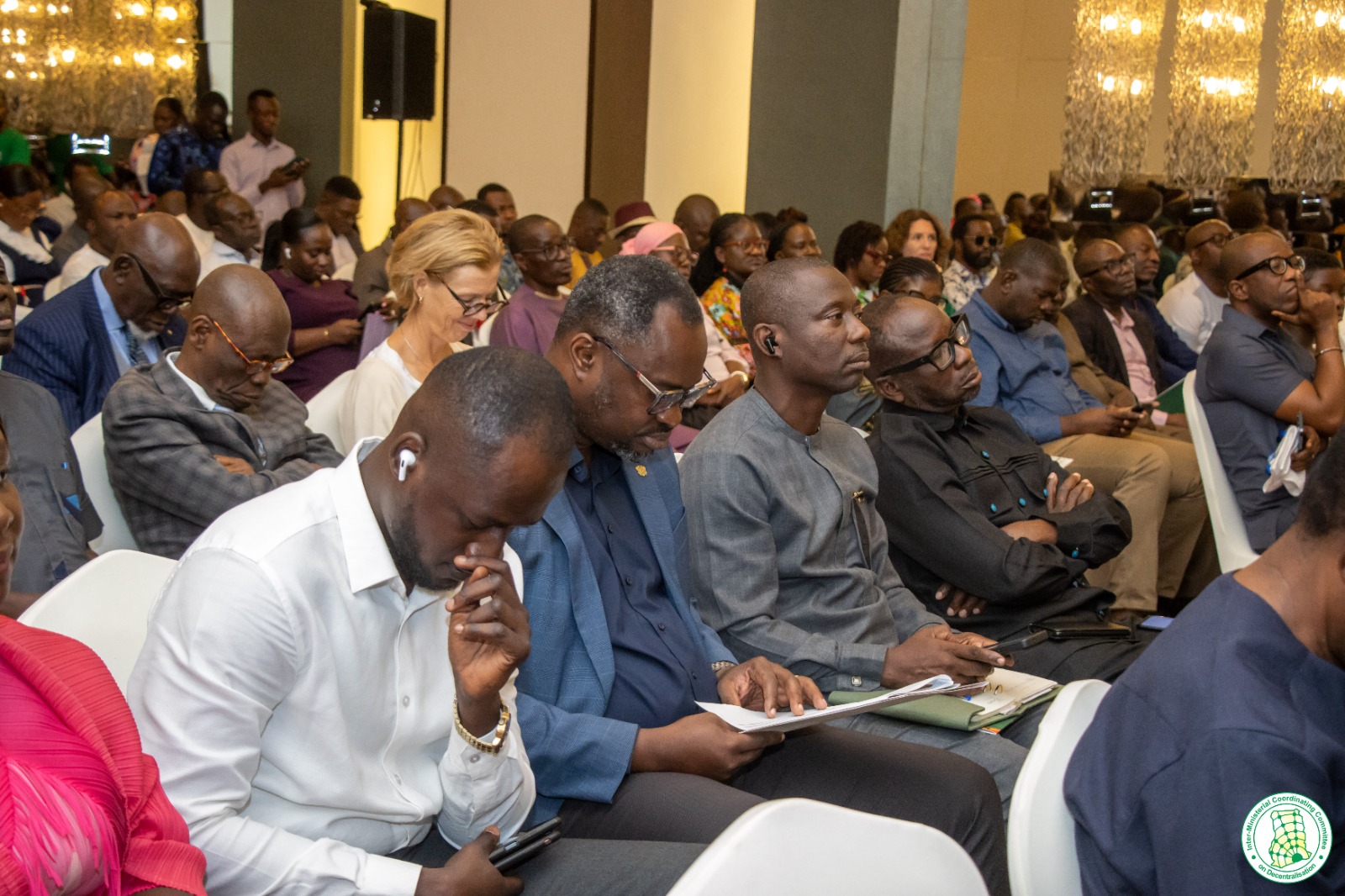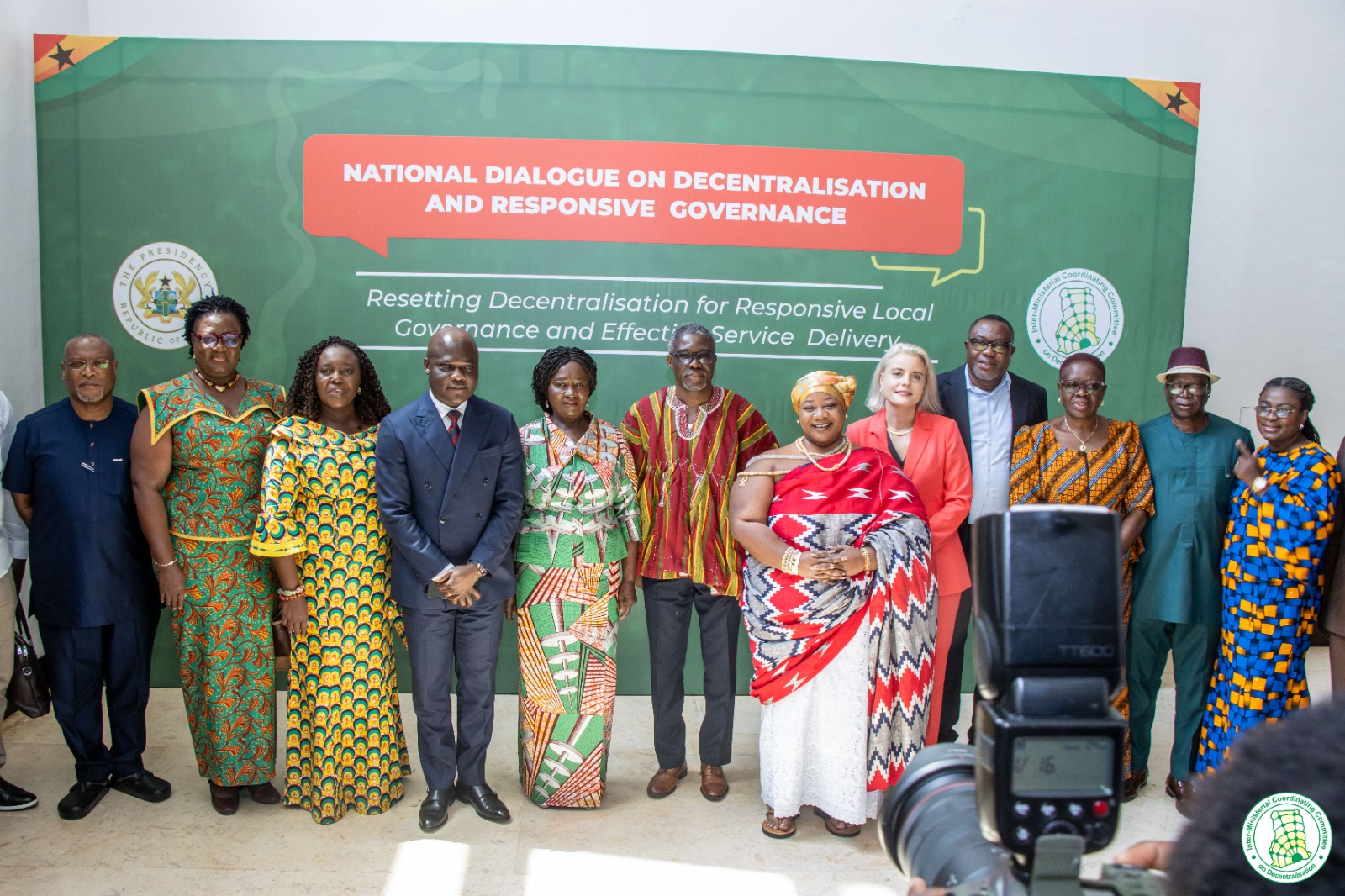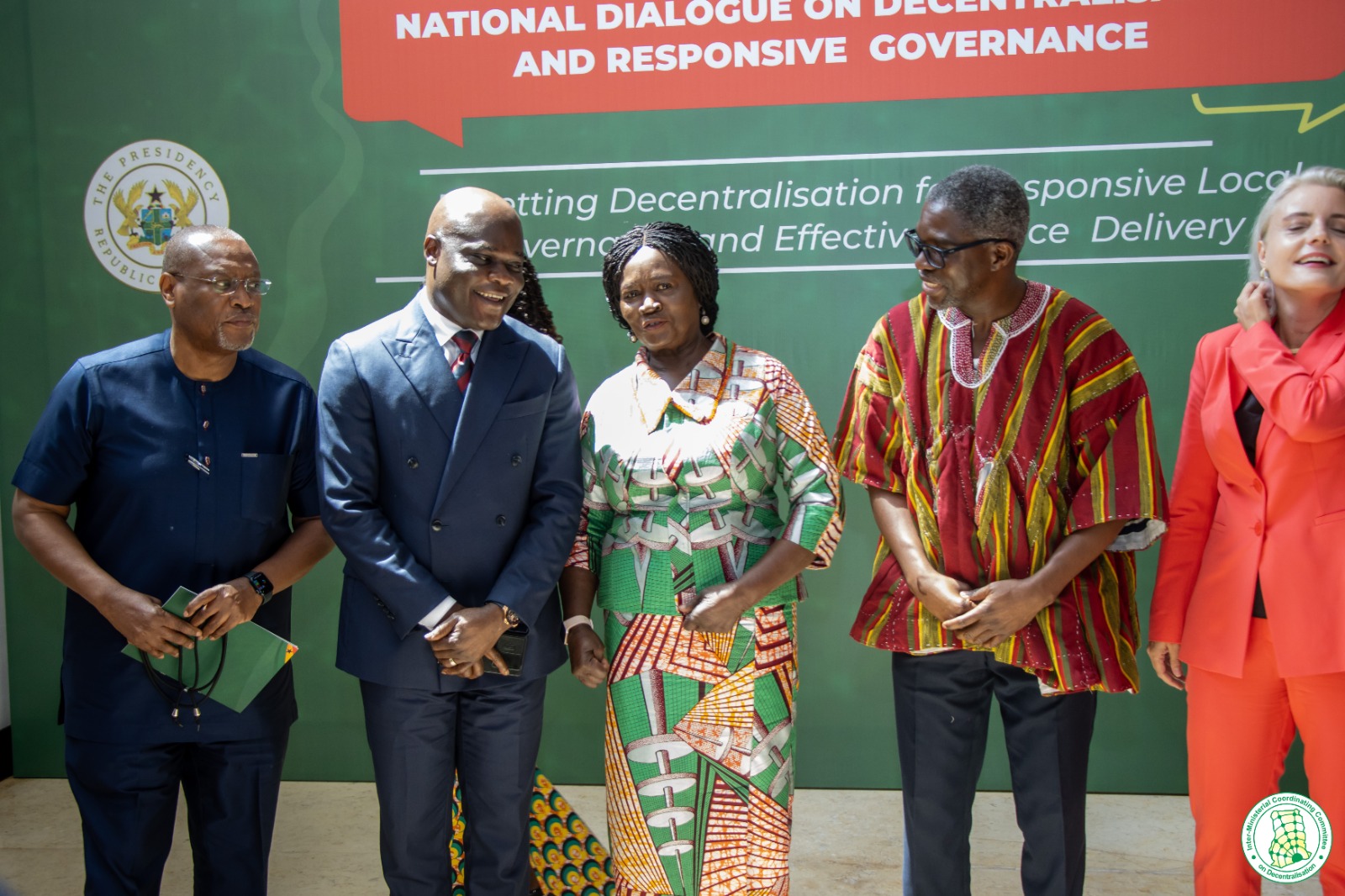Her Excellency Professor Naana Jane Opoku-Agyemang, Vice President of the Republic of Ghana, has called for bold reforms to strengthen decentralisation and deepen responsive governance across the country. Delivering the keynote address at the Maiden National Dialogue on Decentralisation and Responsive Governance held from 25th to 26th September 2025 at the Kempinski Hotel in Accra, she said the government’s Reset Agenda places decentralisation at the heart of national development, ensuring that governance is brought closer to the people and that resources match responsibilities at the local level.
Highlighting progress made, the Vice President announced that over GH¢2 billion has been disbursed through the District Assemblies Common Fund (DACF) to support local development and improve service delivery. She said this demonstrates government’s resolve to make the long-standing principle that “funds must follow functions” a living reality rather than a slogan. She added that decentralisation must also promote participation and accountability so that citizens’ voices shape priorities and Assemblies are empowered to respond effectively.
Reaffirming government’s commitments, Professor Opoku-Agyemang noted plans to increase DACF allocations, advance discussions on the election of Metropolitan, Municipal and District Chief Executives (MMDCEs), and enhance Assemblies’ capacity to generate and manage revenues. “The next time a child walks into a classroom, a mother visits a health centre, or a farmer seeks extension services, they should feel the hand of government not as something distant in Accra, but as something responsive in their very community,” she said.
The Vice President commended the Inter-Ministerial Coordinating Committee on Decentralisation (IMCCoD) and its Secretariat for advancing reforms, noting the ongoing formulation of the National Decentralisation Policy and Strategy (2026–2030). She assured that government would continue to strengthen and resource the Committee to ensure effective coordination across sectors. “A strong and empowered IMCC is both a guarantee of effective policy coordination and a statement of our unwavering commitment to make decentralisation the driver of responsive governance and improved service delivery,” she affirmed.
She urged all stakeholders , government institutions, traditional and religious leaders, civil society, academia, development partners, and the private sector to treat the Dialogue as a call to collective action that redefines how citizens experience government in their daily lives. According to her, “the outcomes of this dialogue will shape how Ghana governs itself and how every citizen experiences government.”
The two-day National Dialogue, held under the theme “Resetting Decentralisation for Responsive Local Governance and Effective Service Delivery,” brought together ministers of state, Members of Parliament, local government officials, development partners, traditional and religious leaders, and civil society actors to chart a renewed direction for Ghana’s decentralisation framework for 2026–2030.
Source: Darling Maame Efua Cann
MLGCRA PUBLIC RELATIONS UNIT


.jpeg)


